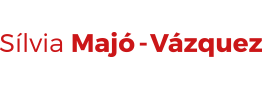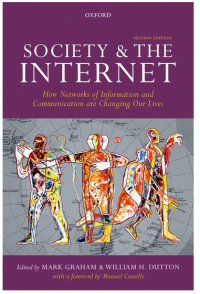Invited by the Catalan Associación of Journalists, based in Barcelona, I sat in a round table to talk about the prevalence of echo-chambers in the online domain. The discussion brough together journalists and academics who debated about the prevalence and severity of news cosumption patterns that conform our world view.
We have published a new study in the Proceedings of the National Academy of Sciences (PNAS) where we show that mobile access to news has widened news diets and that ideological self-selection explains only a small percentage of co-exposure to news. Our newly published study resorts to an unprecedented combination
The Spanish Democracy Report (Informe sobre la Democracia en España) by Fundación Alternativas was launched 19 of October in Madrid. The document features a chapter by professor Sandra González-Bailón, University of Pennsylvania and myself including an analysis on modes of exposure to news information online (our chapter can be accessed
The videos of the panels of the The International Journal of Press/Politics annual conference are available on Youtube. They feature a range of interesting presentations from colleagues from 36 different countries. Here, I presented our work on political fragmentation on social media using a Structural Topic Model approach. This is
The World Association of Public Opinion Research awarded us the Robert M. Worcester Price for the best paper 2019. Our paper "Is Facebook Eroding the Public Agenda? Evidence from browsing tracking data" was considered the best manuscript published in the International Journal of Public Opinion Research. The lead co-author, professor
Among the range of interesting (virtual) seminars taking place last summer, I had the pleasure to join my colleages at Meso Argentina for the talk on "Noticias Falsas y Desinformación: Audiencias, Opinión Pública y Marclos Regulatorios" (Fake News and Disinformation: Audiences, Public Opinión and Regulatory Frameworks).
My presentation focused on the
In this RISJ Factsheet, we assess the volume and patterns of toxic conversations on social media during the Covid-19 pandemic. We specifically analyse worldwide conversations on Twitter targeting the World Health Organization (WHO), a central actor during the pandemic.
Download here the factsheet to read all the results.
Toxic messages amount
We are rapidly approaching a new presidential election in the US. What does evidence tell us on how audiences navigate news during elections? Based on observed digital data, I presented the results of Reuters Institute studies on news audience behaviour during major political events like the elections in the US
In commemoration of the IX Anniversary of the Catalan newspaper ARA, they featured my op-ed article on the future of journalism and the challenges of the profession on the years ahead.
Access my op-ed here (in Catalan)
“Digital News and the Consumption of Political Information”, with Sandra González-Bailón in Graham, M., Dutton, W. H., (eds.). 2019. Society and the Internet, 2nd edition, Oxford: OUP.
Download it here










